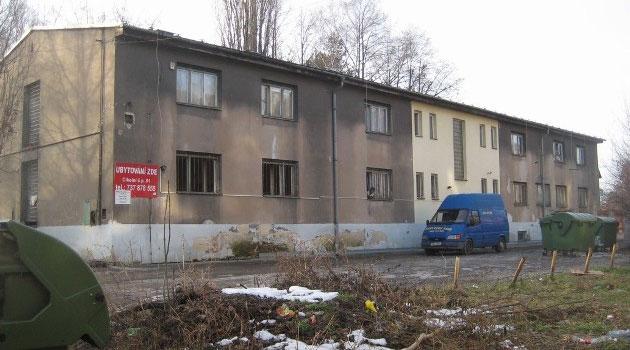Czech Republic: Insurance scam in Ostrava affects the deprived

A recently publicized incident in which patients in the Czech town of Ostrava were fraudulently registered with health insurers has affected socially vulnerable families with many children and Romani people in particular. At the start of the year an unusually large number of socially vulnerable residents living in a former mining colony in the municipal department of Ostrava-Radvanice changed their health insurance companies. Now, however, it turns out that many of them had no idea their insurance registrations had been changed and their signatures were most probably falsified. The police will be investigating the case.
Doctors are now determining how many patients’ insurance registrations were changed at the end of last year and whether the changes were voluntary or the requests were simply falsified. According to a report by the daily Právo, pediatrician Eva Schallerová of the Radvanice quarter determined this week that approximately 10 % of her patients changed their medical insurance as of the end of last year, an exceptionally high number compared to previous years.
Many of those patients had no idea their registrations had been changed.
It is probably not a coincidence that all of those affected are socially vulnerable, and most of them are Romani families with large numbers of children. The completely logical supposition is that because of the already large numbers of problems in their lives, these people never noticed their registration had been changed.
"It has already been proven that some of the patients who were transferred to the Czech Industrial Health Insurance plan (Česká průmyslová zdravotní pojišťovna – ČPZP) were unaware of the change. I consider this an enormous scandal," the pediatrician told Právo.
For the time being it is impossible to say what percentage of the transferred patients never asked for the change.
One family simply found new insurance cards in their mailbox.
"Naturally I have not spoken with all of them yet, but recently I have started receiving billing error statements from various health insurers stating that the patients are not insured with them. I presume this will not be just a few isolated cases," the pediatrician said.
Právo has managed to contact one of the victims of this fraud. Marcela Dömeová received new health insurance cards several weeks ago in the mail for herself and her four children. She works as a Romani assistant in a primary school in Ostrava. She and her husband went to the Czech Health Insurance company office (Česká zdravotní pojišťovna) where they started asking for an explanation. "When they compared my signature with the one on the registration paper, it was clear that someone had simply forged my signature," claims Dömeová, who filed criminal charges in the matter at the end of last week.
Records of repeated meetings with insurance company staffers also confirm those findings. "During the monitoring it was determined that the applications had been falsified and the signature did not match that of the client," reads one such record which Právo has seen. At the request of the client concerned, ČPZP cancelled the registration and transferred her back to her original health insurer.
Elenka Mazurová, a spokesperson for ČPZP, confirmed that the insurance company is really grappling with such a problem. "In that particular case it was the failure of an individual who no longer works here," she said, adding that ČPZP contracts outsiders to register new clients. She would not answer the question of how many such cases the company is aware of but would only say that if clients who have been registered without their knowledge now contact the company, their registrations will be cancelled and the company will administratively ensure the return of the clients to their original health insurer.
Other media outlets have also begun taken an interest in the case. Confirmation is underway that the problem does not only concern ČPZP, but also other insurers, including the General Health Insurance company (Všeobecná zdravotní pojišťovna – VZP).
Lýdie Poláčková of the Counseling Center for Citizenship/Civic and Human Rights (Poradna pro občanství/Občanská a lidská práva) has confirmed a similar experience. "My own sister told me of a case like the ones now coming to light. Not long ago she was visited by a private insurance agent. Under the pretext of registering her with the iZIP system, the online medical records system, he also had her sign her consent to leaving the VZP for another company. My sister, of course, did not notice that she was signing such a thing and he never mentioned it. About 14 days later she got an announcement that she was no longer insured by VZP, which greatly surprised her, she was in shock. She had to contact them to re-register. It cost her energy and time, and very often that is what the socially vulnerable don’t have – not only Romani people, but senior citizens and the very impoverished. I am sad because these cold-blooded con artists are preying on the most vulnerable, people who might only be able to defend themselves in a limited way if they ever even learn that this fraud was committed against them," Poláčková told news server Romea.cz.